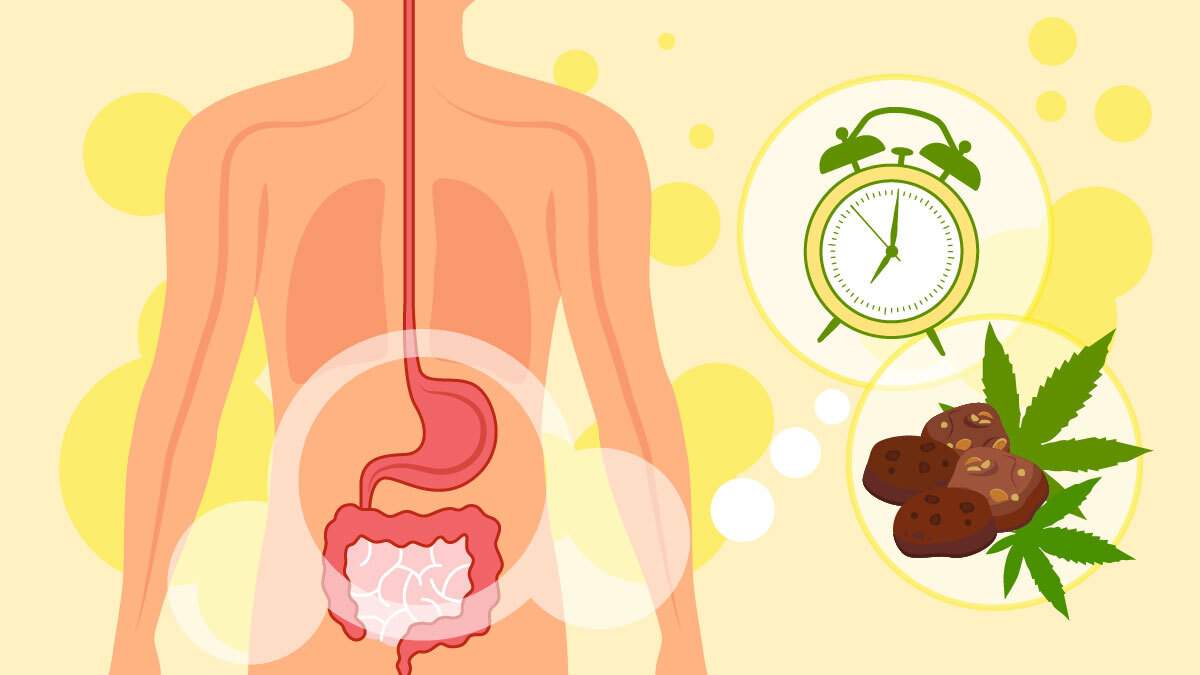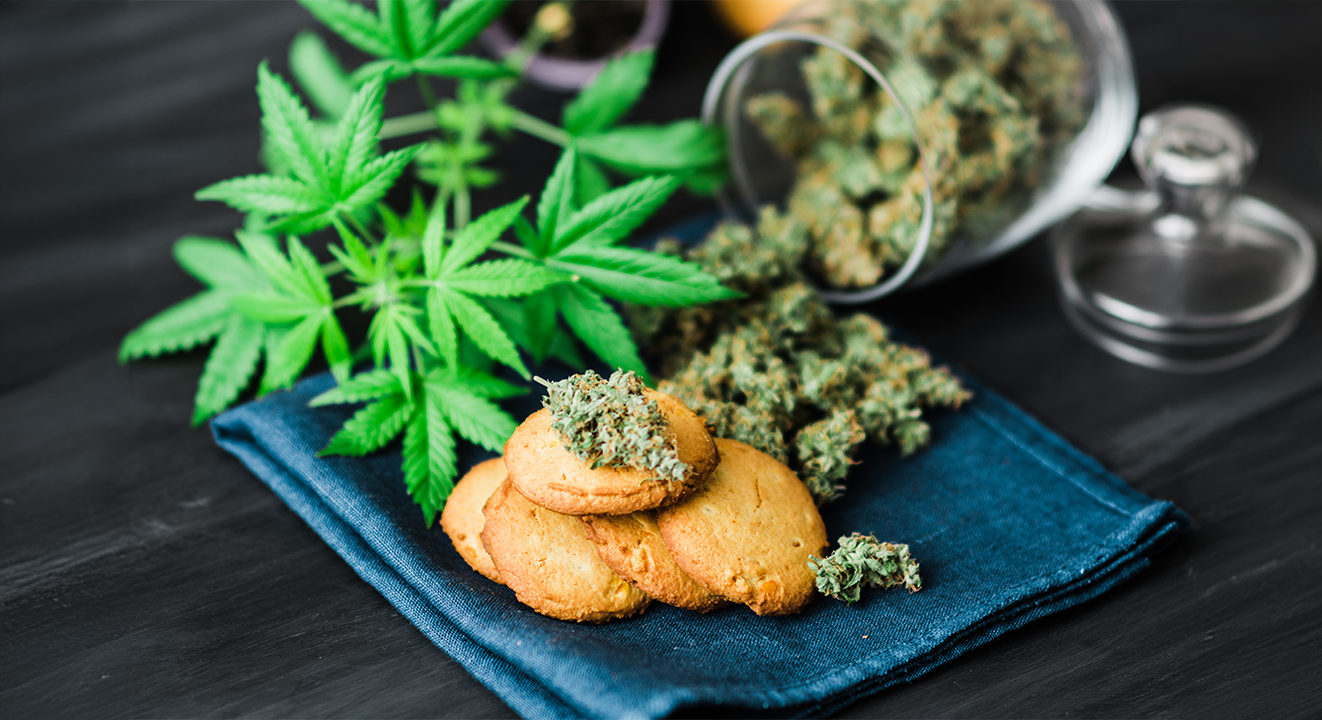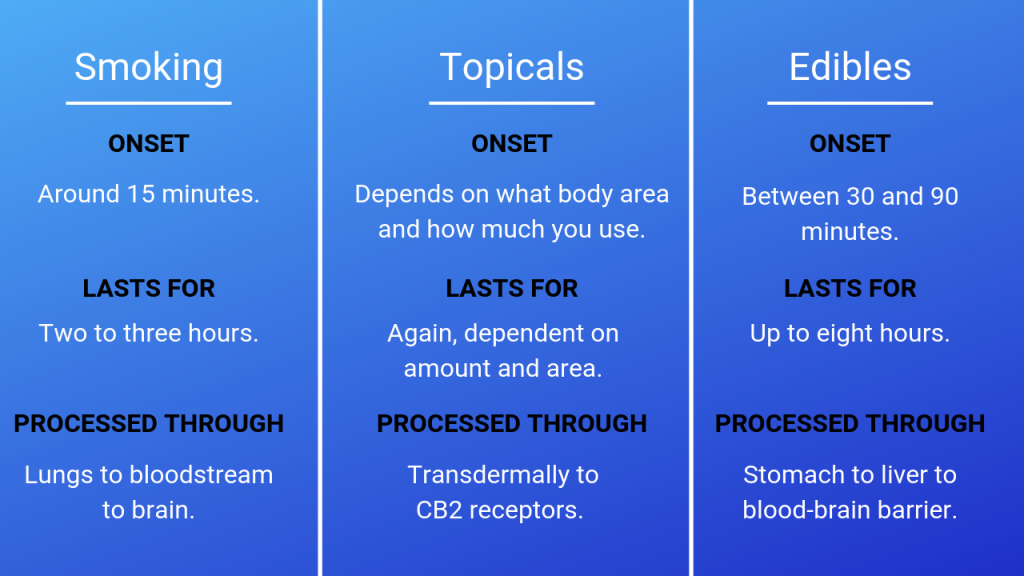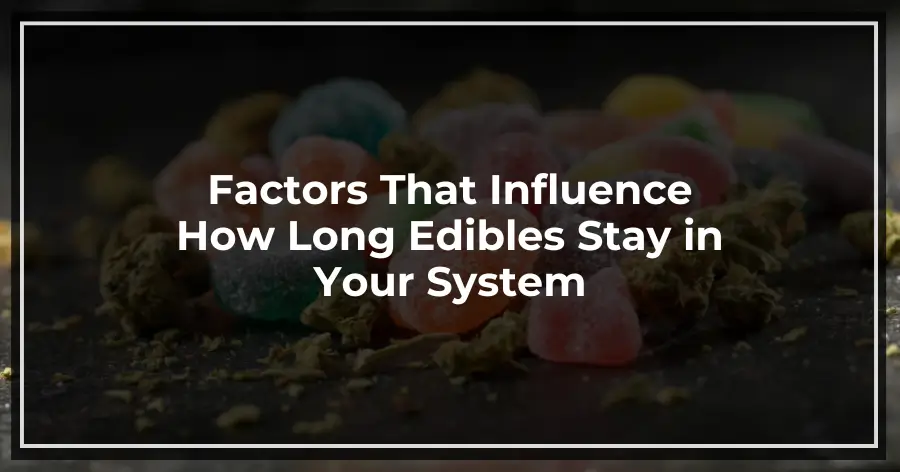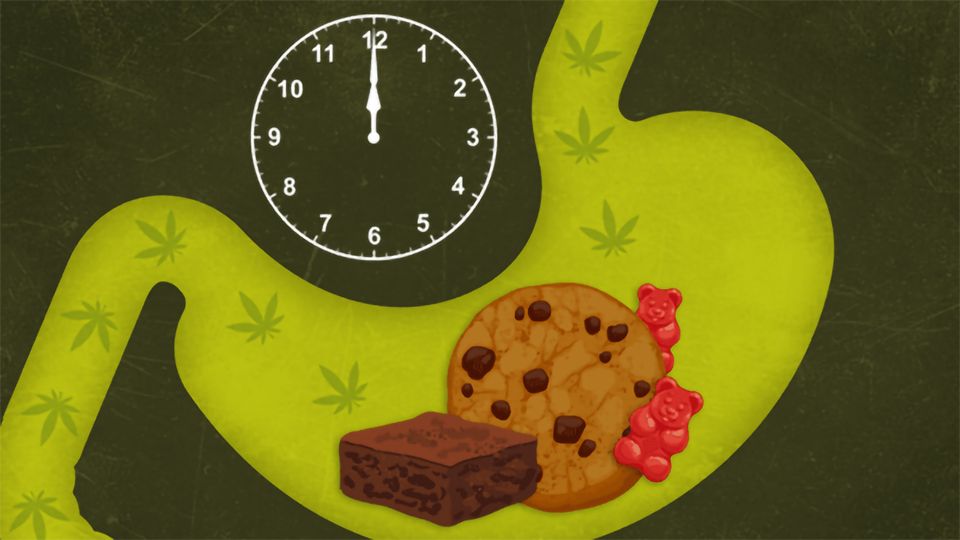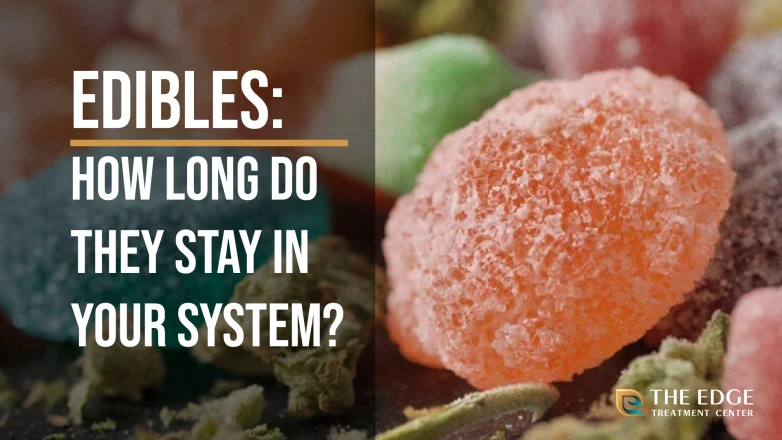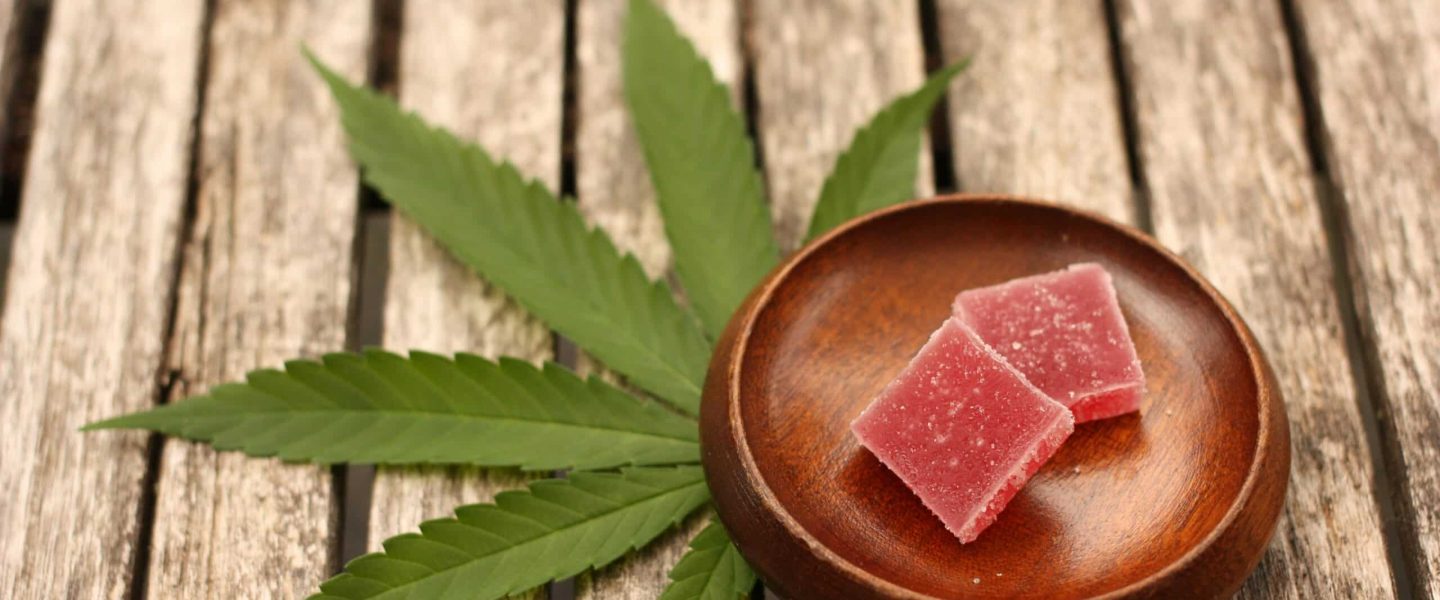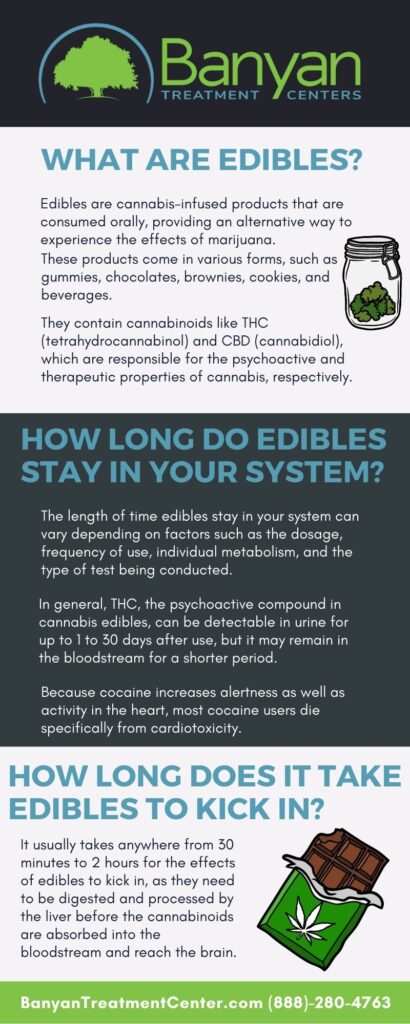How Long Does An Edible Stay In Your System

The increasing popularity of cannabis edibles has led to a surge in questions surrounding their effects and detectability. How long does an edible stay in your system? The answer is complex and depends on various factors, making it crucial to understand the nuances involved.
Understanding how long edibles remain detectable is critical for individuals subject to drug testing, those concerned about potential impairment, and anyone seeking to consume edibles responsibly. This article explores the factors influencing the duration of edible detectability, providing a comprehensive overview based on scientific research and expert opinions.
Factors Influencing Edible Detectability
Several key factors determine how long THC, the psychoactive component of cannabis, remains detectable after consuming an edible. These include metabolism, dosage, frequency of use, and individual body composition.
Metabolism plays a significant role. Individuals with faster metabolisms tend to process and eliminate THC more quickly.
Dosage is another critical factor. Higher doses of THC will naturally take longer to be metabolized and eliminated from the body.
Frequency of use also influences detectability. Chronic, heavy cannabis users tend to have THC stored in their fat cells, leading to longer detection windows.
Body composition, specifically body fat percentage, also affects how long THC remains detectable. THC is fat-soluble, meaning it binds to fat cells and can be stored for extended periods.
Hydration levels and exercise habits can indirectly impact the speed at which THC is metabolized. Increased water intake may help flush out metabolites, while exercise can potentially release THC from fat stores. However, these effects are generally considered minor compared to the other factors.
Detection Methods and Timelines
Different drug testing methods have varying detection windows for THC metabolites. Understanding these timelines is essential for individuals concerned about drug testing.
Urine tests are the most common method. They typically detect THC metabolites for 3 to 30 days after consumption, depending on frequency of use. Occasional users may test positive for a few days, while heavy users can test positive for a month or longer.
Blood tests have a shorter detection window, generally detecting THC for 1 to 2 days after consumption. However, they are more accurate in detecting recent cannabis use.
Saliva tests usually detect THC for up to 24-72 hours after use. They are commonly used for roadside drug testing.
Hair follicle tests have the longest detection window, potentially detecting THC for up to 90 days. However, these tests are less commonly used and can be more prone to false positives.
Expert Opinions and Research Findings
Research on the detection of THC in various bodily fluids has provided valuable insights. A study published in the journal *Drug and Alcohol Dependence* found that chronic cannabis users had significantly longer detection windows in urine compared to infrequent users.
According to Dr. Emily Carter, a toxicologist specializing in cannabis metabolism, "Individual variations in metabolism, body composition, and consumption habits make it impossible to provide a definitive answer for how long THC will remain detectable. The ranges provided by testing labs are estimates based on averages."
The National Institute on Drug Abuse (NIDA) emphasizes the importance of considering individual factors when interpreting drug test results. They highlight that factors such as body mass index (BMI), hydration levels, and exercise habits can influence the detection window.
Potential Impact and Considerations
The information regarding edible detectability has significant implications for various groups. Employees subject to drug testing need to be aware of the potential detection windows associated with different consumption patterns.
Individuals operating heavy machinery or driving should refrain from using edibles to avoid impairment and potential accidents. Impairment can last longer than the detection window.
Parents educating their children about drug use should emphasize the variability in detection times and the potential consequences of THC consumption. Open communication is key.
Furthermore, the ongoing debate surrounding cannabis legalization and regulation necessitates accurate and evidence-based information about its effects and detectability. Misinformation can lead to unfair policies and discriminatory practices.
Human Interest Angle
"I lost my job after testing positive for cannabis, even though I only consumed a small edible a few days prior for pain management," shares Sarah Miller, a former warehouse worker. "I had no idea it would stay in my system that long. This has completely changed my life."
Sarah's story highlights the real-world consequences of misunderstanding how long edibles can remain detectable. Her experience underscores the need for greater awareness and education.
Conclusion
Determining how long an edible stays in your system is not a straightforward process. It depends on a confluence of individual factors, consumption habits, and the type of drug test used.
While general guidelines exist, individual variability makes it difficult to provide a precise timeline. Responsible consumption, awareness of potential detection windows, and informed decision-making are crucial for navigating the evolving landscape of cannabis use.
As cannabis legalization continues to spread, ongoing research and education are essential to ensure accurate information and mitigate potential risks. It's always best to consult with a medical professional for personalized advice and guidance.
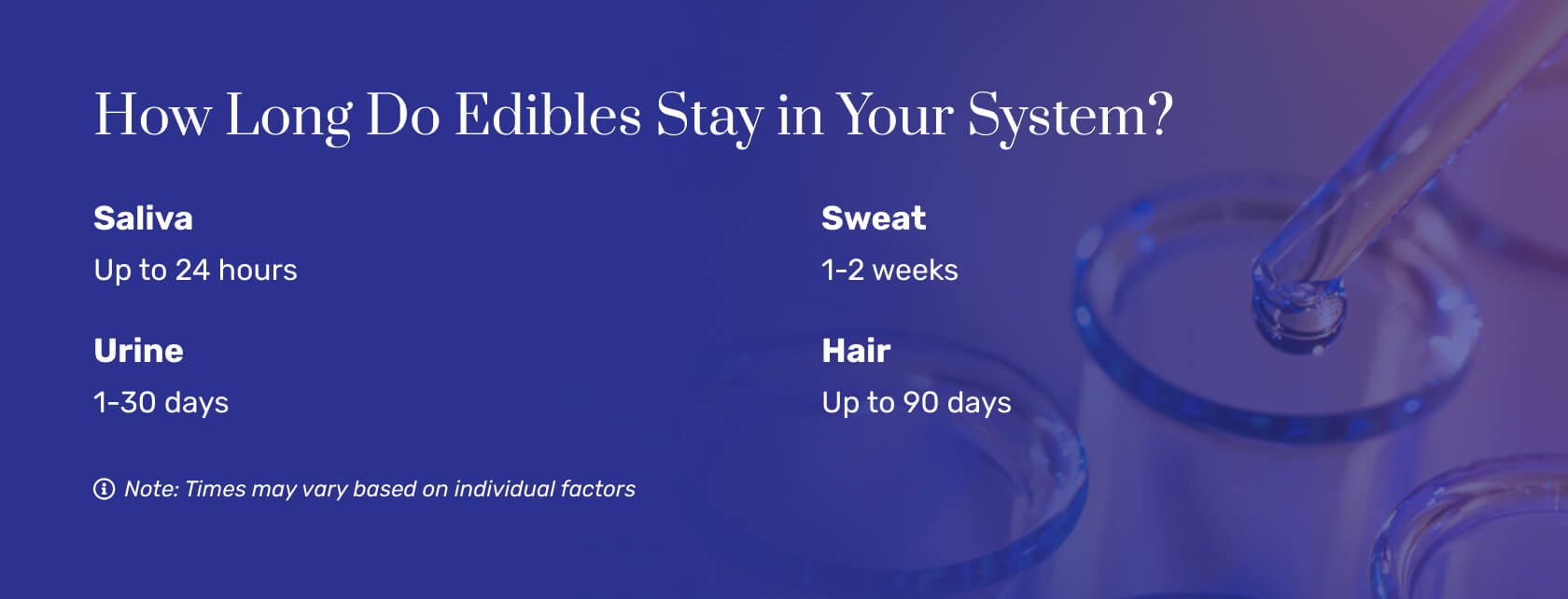
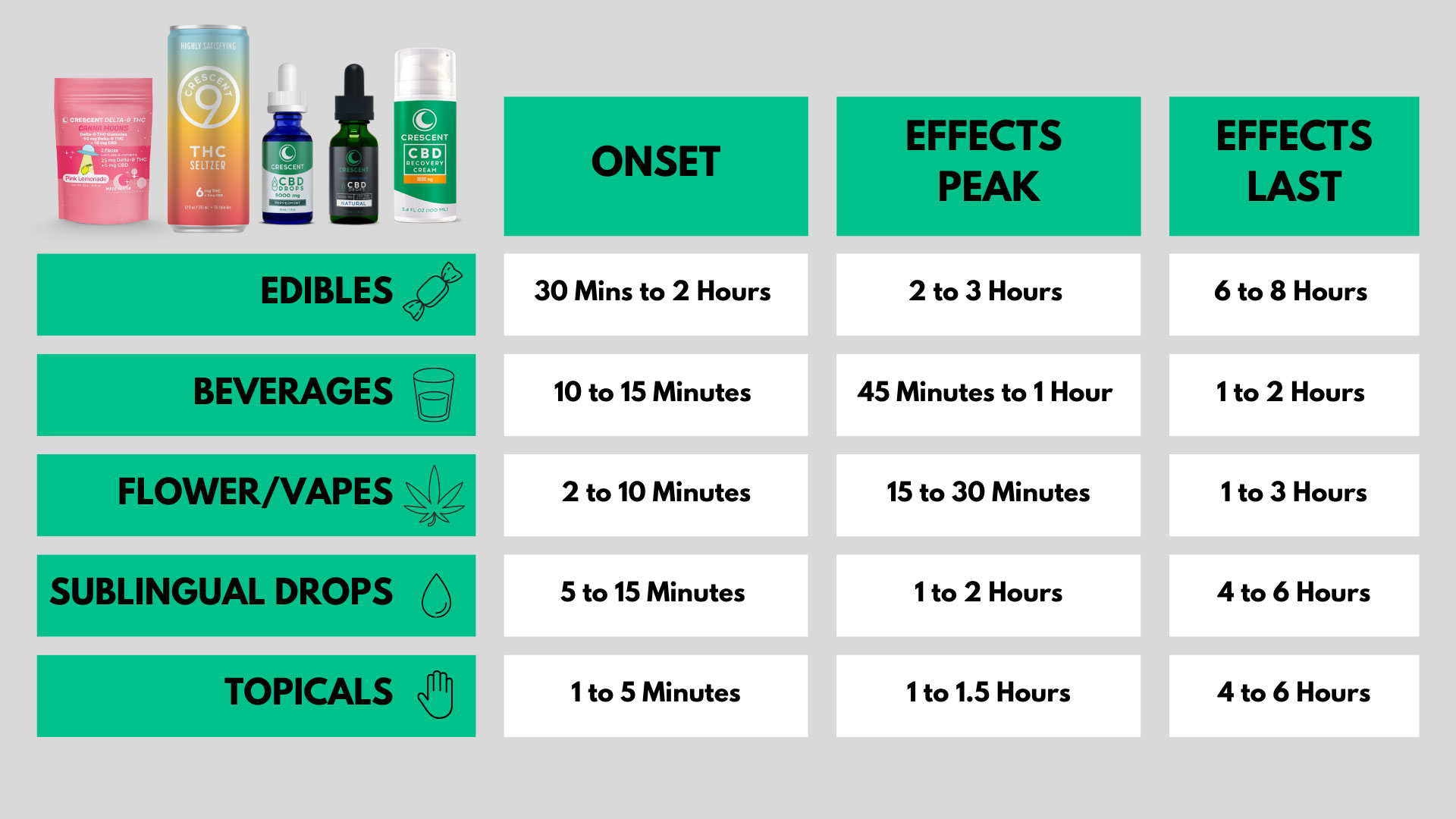
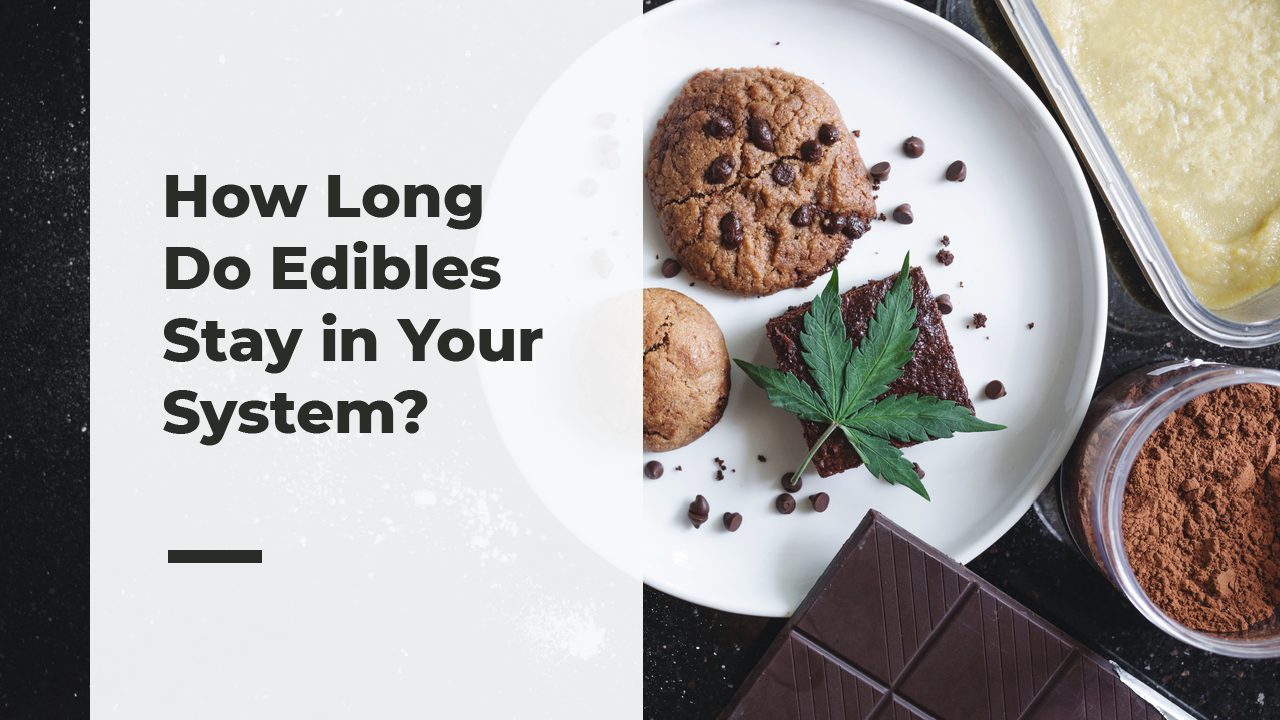
![How Long Does An Edible Stay In Your System How Long Do THC & Edibles Stay in Your System? [Precise Calculator]](https://greencamp.com/wp-content/uploads/2017/08/body-fat-visual-guide-953x1024.jpg)



